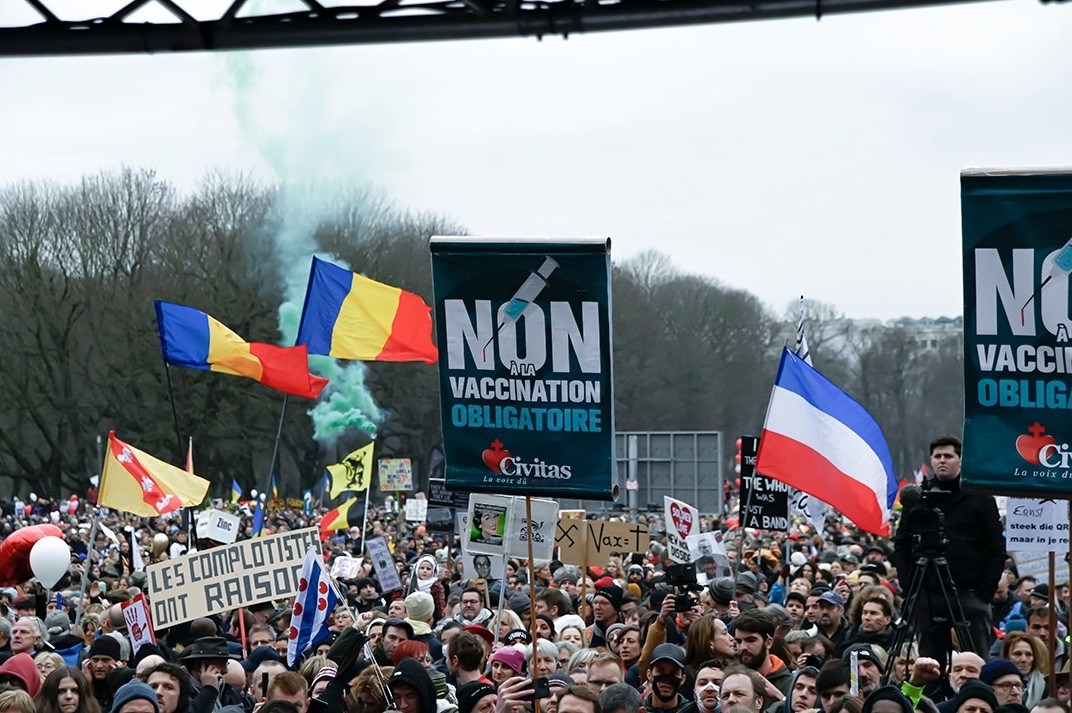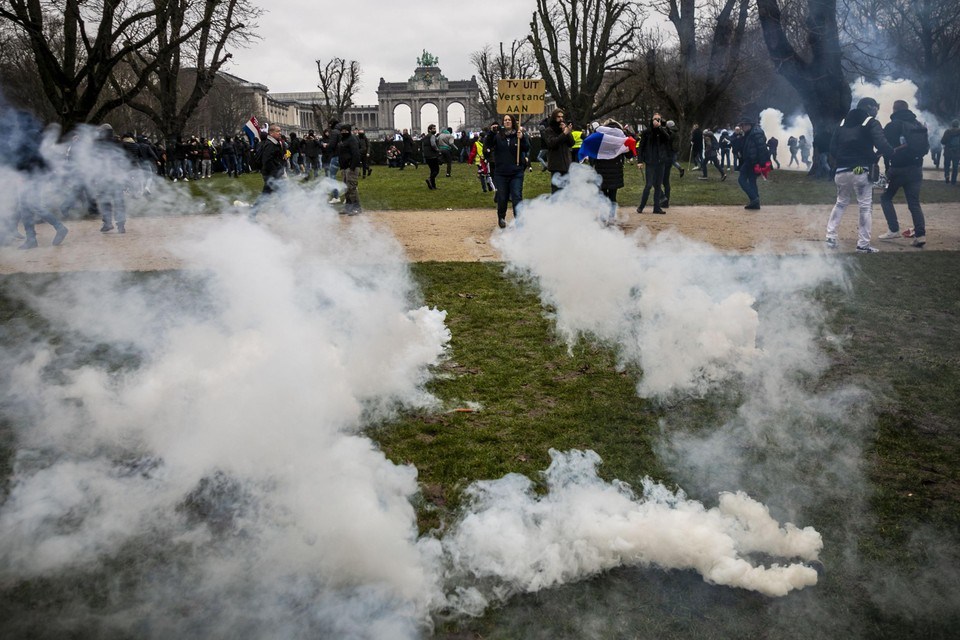Of the 11 judicial arrests following the riots on the fringes of Sunday's anti-Covid demonstration, legal action has already been taken against three suspects, including two minors.
During the European Manifestation for Democracy demonstration on Sunday, some 228 people were arrested, but most were placed under administrative arrest. Eleven others, including three minors, were placed under judicial arrest, among other things, being in the possession of illegal weapons, acts of rebellion and causing damage to public and private property.
"Two minors were brought before a juvenile court and were placed in public community institutions for youth protection. The third minor was released after being questioned by the police," a spokesperson for the Brussels' public prosecutor's office said during a press conference on Wednesday.
Meanwhile, one of the adults who was placed under judicial arrest has been summoned to appear before the Dutch-speaking criminal court for armed rebellion and carrying an object used as a weapon on 17 February 2022.
The other adults were released following questioning as "a further deprivation of liberty did not appear necessary for the proper conduct of the investigation," nor did a deferral of these persons to the examining magistrate for their arrest.
However, Tim De Wolf, the Brussels public prosecutor, stressed that "relaxation does not mean impunity," and that it is still possible to summon suspects before the criminal court if enough evidence has been gathered.
Many violations, relatively few arrests
During the press conference on Wednesday, De Wolf, in the presence of Michel Goovaerts, head of the Brussels-Capital-Ixelles police zone, clarified why such a small number of people were judicially arrested, despite video footage showing multiple people behaving in violation of the law.
Goovaerts explained that, during protests, the police can decide to administratively arrest participants, to restore public order. Only once the demonstration has been halted by a notice from the commune's mayor, meaning attendees are forced to leave the area, does the police carry out judicial arrests.

The protest itself remained largely peaceful throughout the day until riots broke out. Credit: Lance Leverette
"But even this disruption of public order is not a crime, so it does not mean that they will automatically go to court. There is a big difference in the figures that are quoted for the number of arrests made, as a large group of people can be arrested administratively, but that does not mean that a file is made up against every person."
Related News
- Police investigation underway into violence against demonstrators
- Covid-19 protesters plan next march to 'depose the Federal Government'
For a case to go to court, sufficient evidence needs to be gathered, which is why a task force was set up within the police zone Brussels-Capital Ixelles, which works together with the federal police to identify perpetrators. "Getting rioters out of the crowds and arresting them on the spot is a myth, it is usually not this easy," Goovaerts said.
"It takes a lot of time and effort to dig through and find relevant video material and to prepare all the cases so that they will stand up in court, which requires several weeks to months of work," he explained, adding that this work is ongoing and that the findings will be shared in the coming months.
In very few cases, the police may be able to arrest a suspect on the spot and have enough evidence of a violent act taking place, meaning the public prosecutor can implement so-called "summary justice," meaning a case is brought to court speedily.
In the past two months, five anti-Covid demonstrations have resulted in riots breaking out, and various cases of suspects are either scheduled to be brought before a court or are still being investigated by the Task Force.

